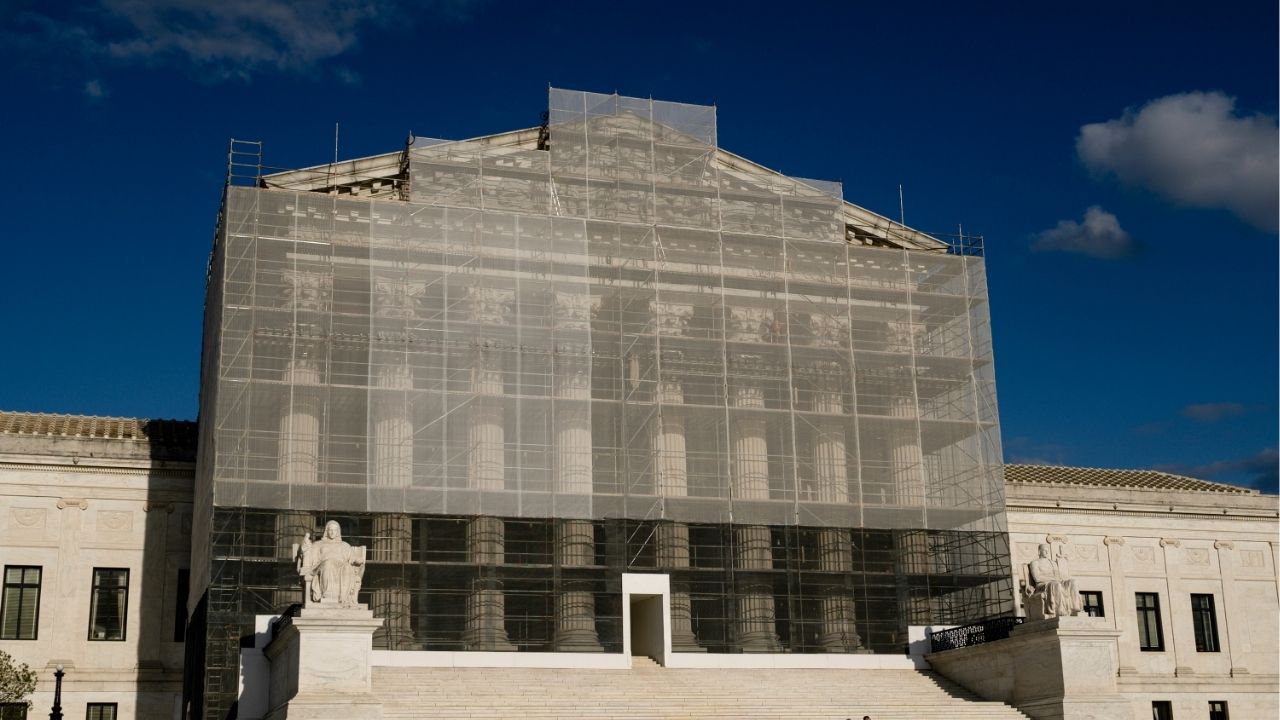The U.S. Supreme Court in Washington, Sept. 9, 2025. The Trump administration on Friday asked the Supreme Court to uphold President Trump’s executive order ending birthright citizenship, the long-held principle that children born on American soil are automatically citizens.(Tierney L. Cross/The New York Times)
Share
|
Getting your Trinity Audio player ready...
|
The Supreme Court on Thursday allowed Donald Trump’s administration to bar applicants for U.S. passports from designating the sex reflecting their gender identities on the document, part of the Republican president’s crackdown on the rights of transgender Americans.
The court granted the Justice Department’s request to lift a judge’s order that had blocked the policy requiring passports to correspond only to a person’s sex assigned at birth, while a class action lawsuit challenging the administration’s action plays out.
The court’s three liberal justices publicly dissented from the decision.
The administration’s policy reverses decades of practice at the U.S. State Department, which since 1992 had permitted passport sex designations to differ from sex assigned at birth with medical documentation.
Under Democratic President Joe Biden, the State Department in 2021 allowed passport applicants to self-select a male or female sex marker without such documentation, and added a third option “X” for nonbinary, intersex and gender non-conforming applicants.
Boston-based U.S. District Judge Julia Kobick in April found that the Trump administration policy likely discriminates based on sex and is rooted in “irrational prejudice” toward transgender Americans in violation of their equal protection rights under U.S. Constitution’s Fifth Amendment, and runs afoul of a law governing the actions of federal agencies.
The judge in June blocked its enforcement against a nationwide class of passport seekers affected by the policy.
Trump has targeted the rights of transgender people in a series of executive orders since returning to the presidency in January, including one stating that the U.S. government will recognize only two sexes, male and female. Trump has cast the gender identity of transgender people as a lie.
Administration Repeatedly Asks Justices to Intervene
The administration has repeatedly asked the justices this year to intervene to allow implementation of Trump policies impeded by lower courts. The Supreme Court, which has a 6-3 conservative majority, has sided with the administration in almost every case it has been called upon to review since Trump returned to the presidency in January.
The court in May allowed the administration to implement Trump’s ban on transgender people in the military. Pentagon Chief Pete Hegseth subsequently has referred to transgender people as “dudes in dresses.”
In August, the court let the administration make sweeping cuts to National Institutes of Health grants, including for research related to LGBT people. The moves were part of the administration’s wide-ranging actions targeting programs promoting diversity or “gender ideology” that it opposes.
The plaintiffs in the passports case said having sex markers on official documents that differ from their gender identities exposes them to harassment and mistreatment, including accusations of presenting fake identification, extra security screenings and even detainment.
The plaintiffs had said in a court filing that they “seek the same thing millions of Americans take for granted: passports that allow them to travel without fear of misidentification, harassment, or violence.”
The Justice Department told the Supreme Court that Kobick’s order blocking implementation of the passport policy change was flawed.
“Private citizens cannot force the government to use inaccurate sex designations on identification documents that fail to reflect the person’s biological sex – especially not on identification documents that are government property and an exercise of the president’s constitutional and statutory power to communicate with foreign governments,” Justice Department lawyers wrote.
Kobick refused the administration’s request to rescind her injunction in the wake of the Supreme Court’s landmark ruling in June that upheld a Republican-backed ban in Tennessee on gender-affirming medical care for transgender minors.
The Boston-based 1st U.S. Circuit Court of Appeals declined in September to put Kobick’s injunction on hold while the administration appeals her ruling.
—
(Reporting by Andrew Chung in New York; Editing by Will Dunham)



















